6. Shallow Grave (1994)
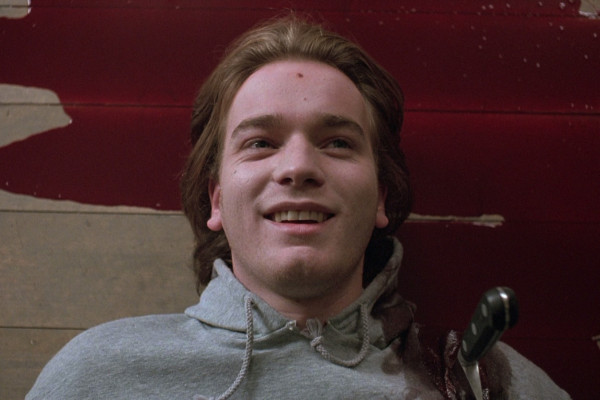
”…Your first film is your best film, because it has that innocence about it, about not knowing what you’re doing.”
Danny Boyle’s cinematic debut was an instant hit at Cannes, beloved by both critics and audiences; it even became the most successful British film of 1995. Looking back on it now, all the hallmarks that Boyle is known for are there already: storytelling through multiple camera angles, bright colors, voice-overs, even the memorable soundtrack.
Looking at his quote, the supposed ‘innocence’ doesn’t seem to be there. There seems to be immense confidence in its storytelling, as though it was the product of an experienced director. It proved to every cinema connoisseur out there that this is a director to watch out for.
What is remarkable about this film is its unrelenting nihilism, far removed from the heartstring-pulling “Slumdog Millionaire”. Essentially, it’s a modern retelling of Geoffrey Chaucer’s “The Pardoner’s Tale”. We have three roommates (Ewan McGregor, Kerry Fox and Christopher Eccleston) who find a suitcase full of money when a roommate of theirs dies of an overdose. The classic tale of regular people finding money and the moral inquiries it produces are there, but it takes a much darker angle.
Compared to similar tales of regular people finding money, its main characters aren’t motivated by desperation – it’s all just greed. All three are reasonably affluent, comfortable in their social status. They are not seeking a way out, they just want more. The message the characters learn in the end is not about the dangers of greed, or the tragedy of their broken friendships. It’s all about who gets away with it, the ones who smiles as he bleeds over his pile of money.
5. 28 Days Later (2002)
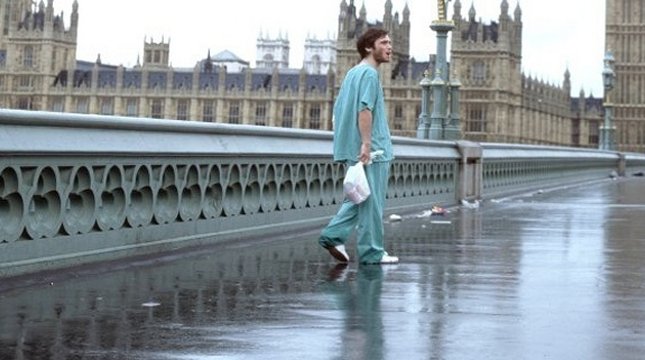
”There’s no point in making a film that some monsters in it that are not scary…”
The zombie craze seems to be dying off, or at the very least slowing down, if you would believe the ratings of “The Walking Dead.” But it had many memorable highlights, and one of them was Boyle’s “28 Days Later”. It might not have had the budget – the streets might not be streaming with decomposing bodies, as one would expect to see after such an apocalyptic infection – but with Boyle in the director’s chair, there’s no need. Despite the uneven adaptation of Alex Garland’s novel “The Beach”, Boyle masterfully adapts Garland’s original screenplay. He would do this again with the masterful 2007’s “Sunshine”.
The opening finds a group of animal activists releasing a diseased monkey which, when infecting others, has a seemingly horrifying effect on its victims. Twenty-eight days later, we find Jim (Cillian Murphy) waking up nude in an abandoned hospital, having no recollection of what happened with the world. As he investigates outside, he finds London desolated and realizes something horrible has happened. When he comes across a priest, who babbles something nonsensically and attacks him in a seeming fit of psychotic rage, it becomes clear what horror has afflicted the civilized world.
Like many great apocalyptic zombie films, there is more to this story than its monsters. It taps into the social unrest within us all, which, if unleashed, is a devastating force of nature. The moody score of John Murphy perfectly complements the film, and its main theme is already iconic.
This is Boyle’s sole entry in the horror genre, but it proves that his style of filmmaking can fit any genre. Compare this to “28 Weeks Later”, the loud, obnoxious, overblown sequel which, despite its bigger budget, could not reach the class of the original.
For many, the sequel might be more entertaining due to its abundance of gore and action set pieces; it has a rather memorable sequence of slicing zombies through helicopter blades. But in the end, it’s a rather empty and particular cruel affair, ever more tainted by various characters doing incredibly stupid things; one such scene shows the military trying to contain the infection by putting everyone in a single room.
It just reminds you how the horror genre can be something special, if masters like Boyle are free to do their thing.
4. Steve Jobs (2015)
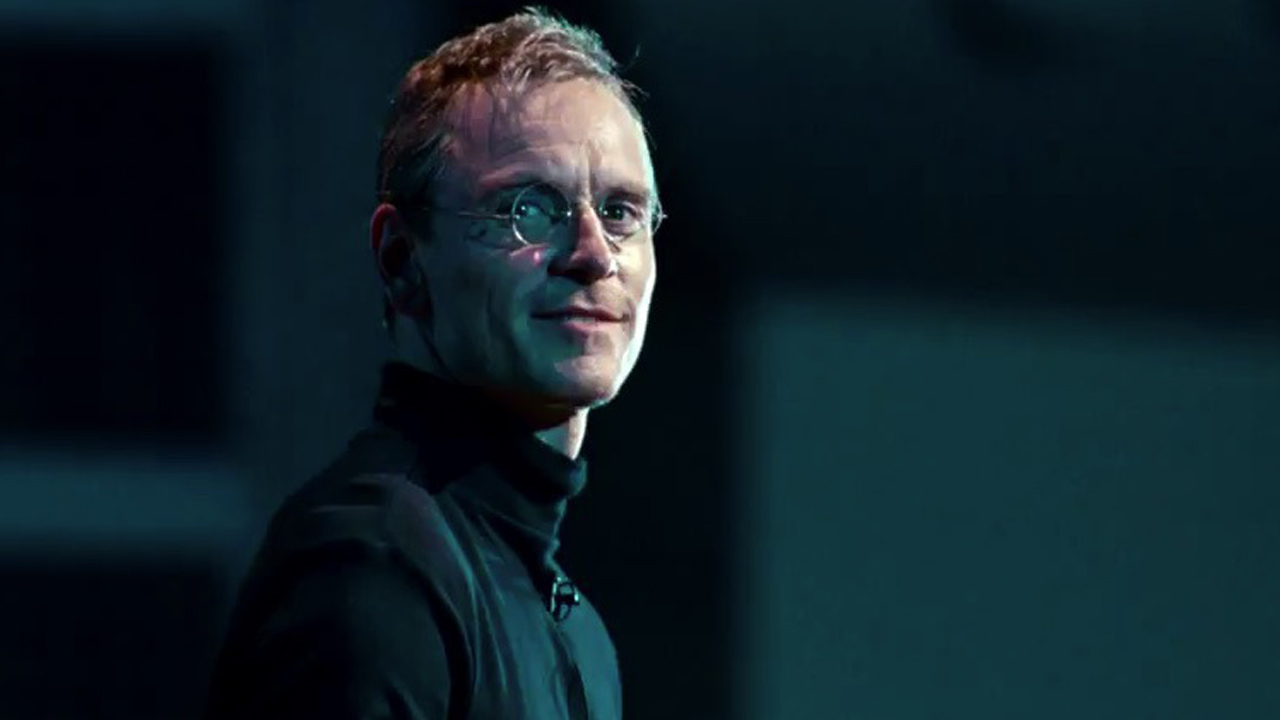
”You read the script and it felt like you’d be crazy not to do it…” My first reaction upon hearing that another Steve Jobs biopic was in the works was not very positive. The previous one, starring Ashton Kutcher, is something best left forgotten (as is usually the case with any film that stars Ashton Kutcher).
The fact that Apple also tries to market Jobs as some sort of visionary genius, a man among the greats in history, only aided my disinterest in the product. Yet when Aaron Sorkin’s script is being adapted by Danny Boyle, you know you are going to see something special. And we did. We got something very special.
Despite it not being the money-maker the studio wanted it to be – perhaps they were as sick of the cult of Steve Jobs as I was – the critical acclaim was something to be reckoned with. Instead of a traditional biopic, Sorkin tells the story in three parts in three different timelines, to delve into Jobs’ troubling psyche.
In all three timelines, new Apple products are being launched while Jobs is struggling with his co-workers and his personal life. Contrary to what I feared, Steve Jobs is not glorified here. There’s little in the way of genius being portrayed here, just ambition and a massive ego with the many personal sacrifices that come with it. But there’s redemption in the end, in the form of his reconciliation with his estranged daughter.
Michael Fassbender, who quickly replaced Christian Bale in the title role, might not look like Jobs, as he himself admitted, but it’s hard to imagine anyone better suited for the role than him. Opposite Fassbender is Kate Winslet as his hard-working assistant, Joanna Hoffman; Seth Rogen as Apple’s co-founder and betrayed friend, Steve Wozniak; and Jeff Daniels as a rival CEO, John Sculley, whose final confrontation with Jobs is perhaps the film’s most memorable scene.
With all the praise one could give to Sorkin’s scribbling abilities, it’s Boyle who adapts it to perfection. The film’s many monologues flow perfectly on screen, with Boyle directing them like a great thriller set piece. Boyle might have a noticeable style but it never overbears any of the film’s central performances.
Much has been said about the film’s historical accuracy, but one could easily proclaim that it reaches the essence of the troubling tech giant. Whatever side you’re on, it’s bliss watching the perfect blend of the great and infamous screenwriter meeting this infamous filmmaker.
3. T2: Trainspotting 2 (2017)
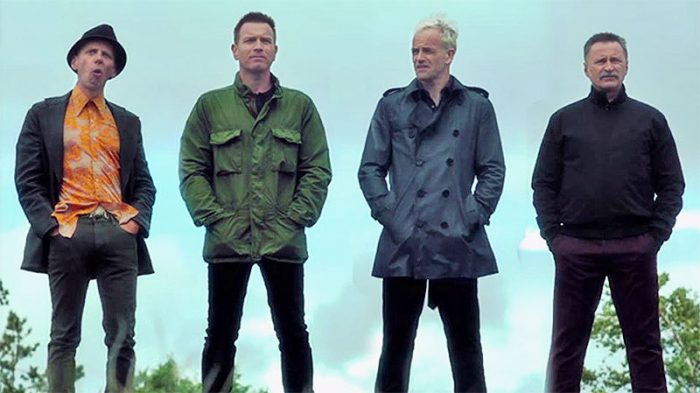
Somewhere in the highlands of Scotland, three friends are remembering a fallen friend. Their names are Simon, Renton and Spud. Simon doesn’t feel anything. Time has a way of diluting our feelings, even to those we have loved so much. ”I’m sorry,” Simon says, ”I’m trying very hard but I’m not feeling anything. We were young, bad things happened. It’s over. Can we go home now?” As Spud heads to their fallen friend’s favorite spot to leave their bouquet of flowers, Renton reminds them why they are here: ”We are here as an act of memorial.”
”It’s just nostalgia, that’s why you are here,” Simon replies, ”you’re a tourist in your own youth…” And then he reminds him of a darker truth: how Renton was the one who turned their fallen friend to heroin, which eventually killed him. The two friends begin to remind each other of their mistakes, all of those painful things that can never be taken away.
Soon after, the two of them get fucked up on smack, while the gentle Spud remains sober, not wanting the past to devour him. Danny Boyle’s sequel to his beloved classic – especially in this age of remakes and reboots – was met with some initial skepticism. No sequel to a film, certainly not a classic from decades ago by the same filmmaker, is guaranteed to work – anyone remember “Blues Brothers 2000”?
But neither Boyle nor screenwriter John Hodge are trying to reclaim the magic of the original. The throwbacks aren’t there to make the fans comfortable; they are there because the characters themselves are these nostalgic tourists, trapped by the past whether they like it or not. They aren’t the young rebels anymore. They are middle-aged, filled with regret, fearful of the future.
After surviving a near-fatal heart attack, Renton returns to Scotland after an exile of nearly 20 years. We see what the years has done to Renton, gentle Spud, sneaky Simon, and psychotic Begbie – his future is the least surprising of all. Renton is not the main focus anymore; it’s an ensemble piece with the four delivering outstanding performances, though it’s hard not to argue that Ewen Bremner and Robert Carlyle aren’t the standouts.
Not only does it continue their story in the most respectful manner, it’s also a beautiful, sometimes brutal elegy on the nature of growing old, and how the choices we make can affect us for the rest of our lives. It’s funny, heartfelt, sad and honest.
It even has the most perfect continuation of the “Choose life” monologue: ”Choose disappointment and choose losing the ones you love, then as they fall from view, a piece of you dies with them until you can see that one day in the future, piece by piece, they will all be gone and there’ll be nothing left of you to call alive or dead.”
So choose your future. And yes, choose life. It’s films like this that makes growing old a little less scary.
2. Sunshine (2007)

”There are three huge, titanic, space movies which, if you ever make a film like this, you cannot avoid. You may want to avoid them but you cannot.” The combination of screenwriter Alex Garland and director Danny Boyle had earlier produced the infamous “28 Days Later”, but their finest contribution is without a doubt 2007’s science fiction thriller “Sunshine”.
Having worked together with Garland to fine-tune the script, while being aided by noted physicist Brian Cox (no, not that one), this film is one of the greatest love letters to the genre.
Boyle was inspired by three science fiction classics and it shows; it has the psychological turmoil of Tarkovsky’s “Solaris”, the terror of Ridley Scott’s “Alien”, and even some of the transcendental themes of “2001: A Space Odyssey” (the visual nods to all these film are aplenty). It is a perfect amalgamation of these films but it still retains its own character and has become a classic in its own right.
The sun is dying. The sun is the light that keeps us alive and without it, humanity as well as all life on Earth will perish. A team of astronauts and scientists board the spaceship Icarus II, which carries with it a payload that is supposed to reignite the light of the sun. Their mission comes with its own perilous hazards, some from the frightening nature of space, others from the human animal itself.
The film’s soundtrack by the great John Murphy (who also produced the haunting score to “28 Days Later”) has been used tirelessly by trailer editors and for good reason. It switches from ethereal to grandiose to emotional seamlessly, and might be one of the greatest scores in cinema history.
The film is also notable for the necessity of science in the face of our survival, and the dangers of religious fundamentalism. We might be mesmerized by the light of the sun, the star that keeps us alive, and imagine it to contain the deity that supposedly created us.
Sometimes the light is so bright that we forget that all we are is stardust and that we are insignificant in the darkness of space. In order to keep our species alive, we must create our own light, a light conjured by the scientific method and love for all that is alive.
1. Trainspotting (1996)
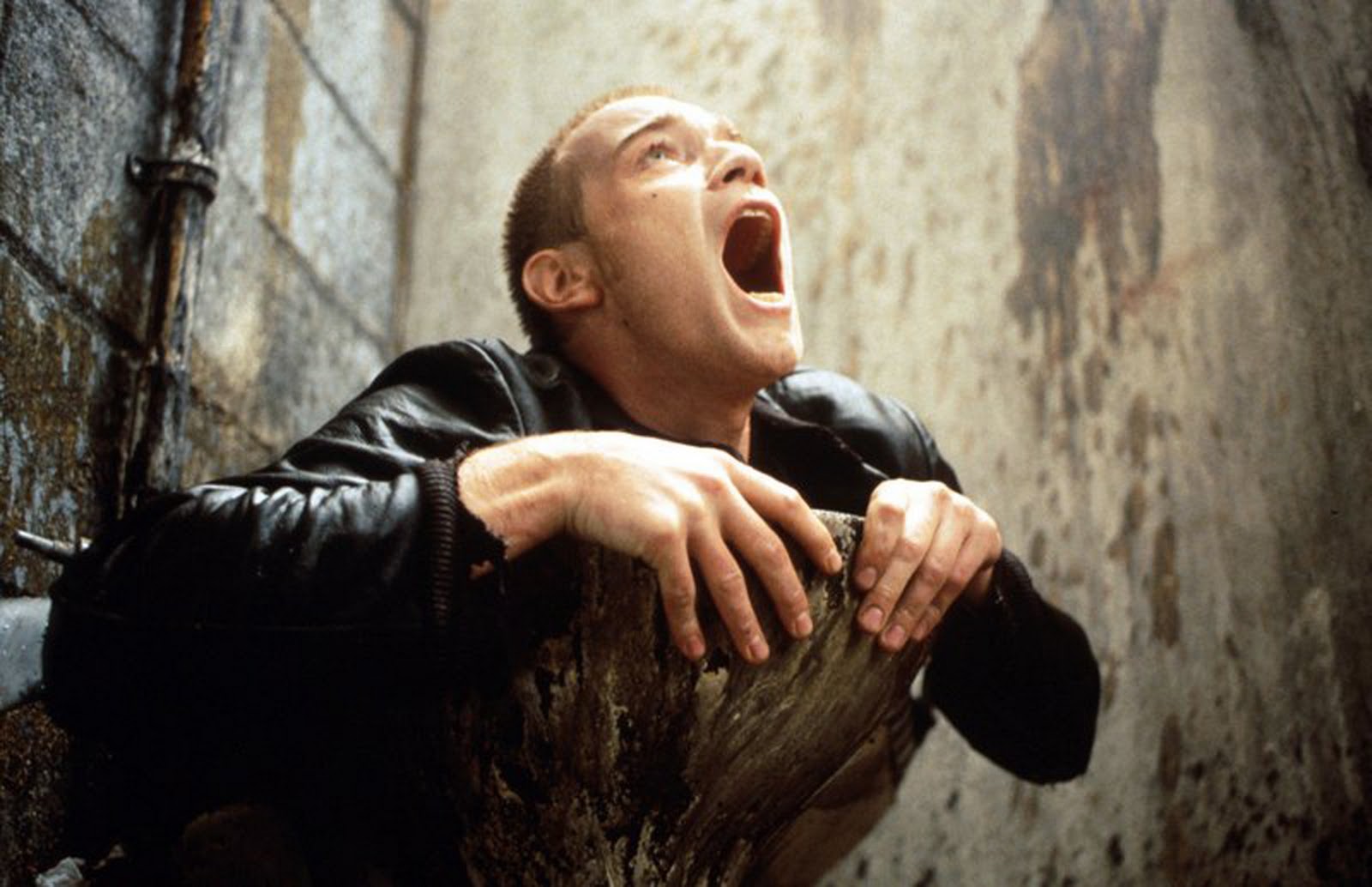
”There was a lot of talk with the first film about whether it was a drug film, and it’s not really. It’s really concerned with the recklessness of that age we all go through when you don’t care about anything really, and the risks you take because of it. There’s that bravado as you emerge out of childhood, and the first film is a celebration of that, rather than it being a social-realist heroin film.” Choose life.
When most people hear that, they don’t think about it being as an anti-drug slogan of the 1980s; they think of Renton running away from the cops, smiling at us after almost being run over by a car. They think of Iggy Pop’s “Lust for Life”. They think of the kindhearted Spud. They think of Jonny Lee Miller’s Scottish accent. They think Begbie’s psychotic episodes. They think of the dead baby crawling on the ceiling. They think of Danny Boyle’s unforgettable “Trainspotting”.
Even though Boyle continued to make great films that might have more technical vivacity compared to “Trainspotting”, none of them will ever leave the impact this film has made on cinema and the generation that fell in love with it. Despite it delving into the nihilism that swept the Scottish culture at the time, it hits a tone with everybody, reaching the young and the old, the naive and the weary, all those who fell into the spell of hedonistic bliss.
You know these people are degenerates but it’s hard not to like them, and to even understand their heroin-infused plight. Choose life and for what? To become like your parents? To become like the rest of them? Is that what’s it’s all about? It’s about those who dared to dream and never came back, those who came back and were never the same. Those who didn’t want to grow up, and the world, perhaps rightly, punished them for it.
“Trainspotting” is not about the dangers of drugs but about rebelling against the conventions of ordinary life, the feeling that it’s all rather meaningless, the bond you have with people as you live on the edge, the small bit of nirvana that comes at the end of a needle.
It’s a film that is more honest about life than most films even dare to be. Perhaps “T2: Trainspotting” is a better film, or at the very least it perfectly complements the original, continuing its theme but leaving the trappings of youth to the trappings of adulthood.
But this is the one that started it all; this is the one that cemented Boyle as one of the great directors of his time. This is the one everybody quotes and turns back to, and for good reason.
Choose life, but know it always ends the same. Choose life and fade away.